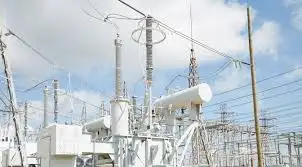Is green power building ChinaÂ’s red power?
Instead of a handful of mostly Middle Eastern states, we would be dependent on a single nation for critical energy supplies — China. The threat to both national security and the U.S. economy is obvious to anyone who isn't blinded by environmentalist dogma.
The president's claim — that his program of subsidies, government grants and tax breaks for green-energy technologies will reduce our dependence on foreign oil and thus improve the United States' national security — is wrong. Rather, the greater our embrace of green-energy technologies, the worse off the United States likely will become geopolitically.
Key components of every green-energy technology, wind turbines, solar cells, energy-efficient lighting, high-tech batteries and other goods, are made from a small class of minerals known as rare-earth elements and other rare minerals. Despite their name, these elements are rather abundant, but at the moment and for the near future, they are found in economically exploitable concentrations only in the People's Republic of China. With 96 percent of the global market, China has a de facto monopoly on the trade in these rare elements.
By contrast, the world's oil market is diverse. Dozens of countries, including the United States, produce and export oil. In 2009, the United States imported oil or oil products from 90 countries. By comparison, there is no other supplier of rare-earth elements to turn to should China find it in its interest to restrict its supply to the market, leaving China free to manipulate the market — both price and supply — at will.
We should not wean ourselves off of drill bits only to addict ourselves to batteries and magnets.
In recent months, China has begun to use its virtual monopoly on rare earths to extract favorable political outcomes from foreign nations.
In September 2010, a Chinese trawler collided with a Japanese coast guard vessel in a disputed portion of the East China Sea. The captain of the fishing boat was arrested by the Japanese. When Japan refused to release the captain, China retaliated by first limiting and eventually halting exports of rare-earth elements to Japan. Japan eventually relented and sent the captain home.
The Obama administration promotes solar-panel production as one area that could see job growth under its push for green jobs. Production of photovoltaic cells relies on the rare element tellurium. However, the only tellurium mine that exists on Earth is in China. And China, in part through its control of tellurium, is increasingly dominating the market for solar manufacturing. In 2003, China produced just 1 percent of the world's solar panels, but by 2009, its share rose to 43 percent. By contrast, in 2003, U.S. production of solar panels accounted for 14 percent of the world total, but now it stands at just 4 percent.
And because the rare earths neodymium and lanthanum are essential to the newest generation of batteries that power new hybrid and electric vehicles, U.S. auto companies are, in part, placing their hope in revitalizing the domestic auto industry on China's continued goodwill.
Wind turbines also require rare-earth elements to make the neodymium-iron-boron magnets they use. General Electric, one of the leading companies developing wind-energy technologies, purchases its entire supply of neodymium-iron-boron from China.
Increasingly, China is choosing to sell finished green products to the world rather than exporting its rare earths in raw form. Accordingly, China has eliminated export tax rebates for rare-earth elements while increasing the export taxes to as much as 25 percent. Furthermore, China decreased its export quota by 40 percent between 2009 and 2010.
Sadly, this dependence on China is driven purely by politics, not consumer demand. Absent huge government subsidies, grants and mandates, green energy, being more expensive and less reliable than traditional energy production, would not be so much in demand, and thus China would not be in the catbird seat.
The push to adopt rare-earth-powered energy technologies involves swapping one form of dependence for a much more restrictive one. The old saying "out of the frying pan into the fire" comes to mind.
If the U.S. government stopped interfering in domestic energy production and ended all energy mandates and subsidies, China's dominance of rare earths would become a non-issue. Absent government support, green-energy technologies would largely fade from the scene until entrepreneurs figure out a way to make them cost-competitive and more reliable. Nor would environmentalists have reason for complaint because fossil fuels would no longer receive subsidies, either. This would be a win-win for both fiscal hawks and green doves.
Related News

Blackout-Prone California Is Exporting Its Energy Policies To Western States, Electricity Will Become More Costly And Unreliable
SAN FRANCISCO - California is again facing widespread blackouts. Politicians are scrambling to assign blame to Pacific Gas & Electric (PG&E) a heavily regulated utility that can only do what the politically appointed regulators say it can do. In recent years this has meant building a bunch of solar and wind projects, while decommissioning reliable sources of power and scrimping on power line maintenance and upgrades.
The blackouts are connected with the legal liability from old and improperly maintained power lines being blamed for sparking fires—in hopes that deenergizing the grid during high winds reduces the likelihood of fires.
How…





